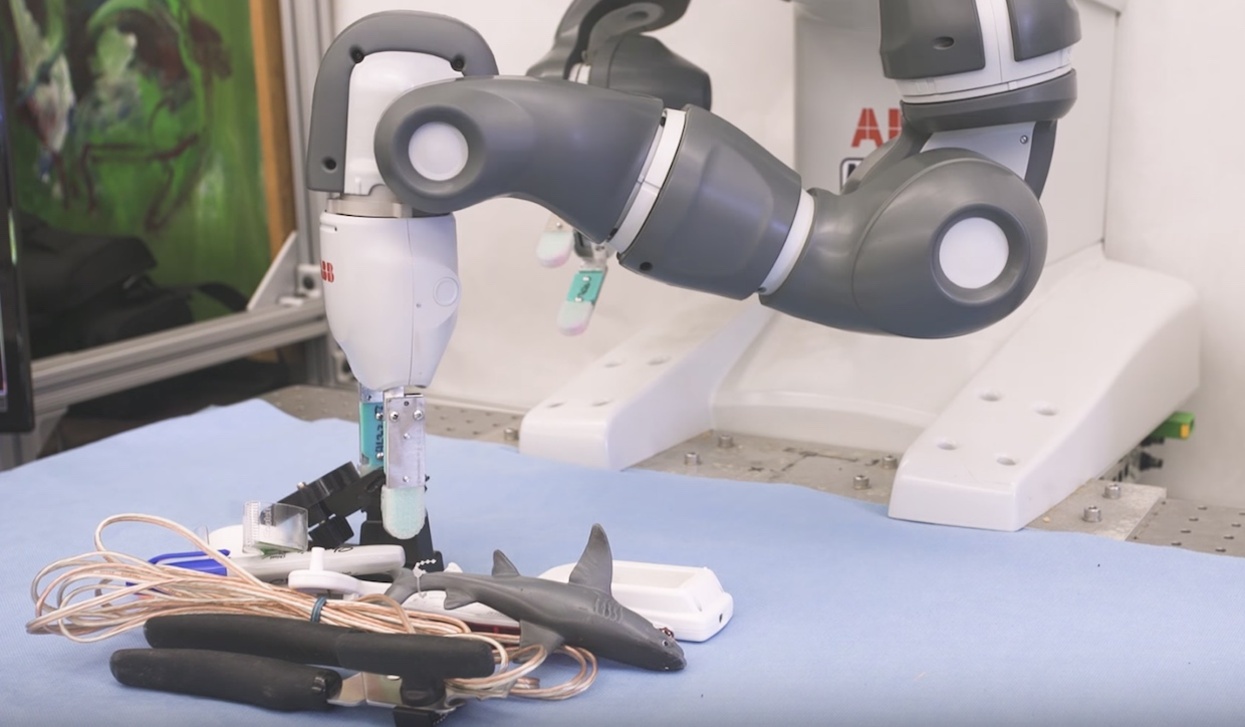Ken Goldberg and Team Release Massive Dex-Net 2.0 Dataset!

BCNM faculty Ken Goldberg and team released an impressive dataset from their Dex-Net robotics project! Eric Ackerman published an article on the dataset in IEEE Spectrum!
From the article:
"Today, Professor Goldberg and AUTOLAB researcher Jeff Mahler are announcing the release of an enormous dataset that provides the foundation for Dex-Net 2.0, a project that uses neural networks to develop highly reliable robot grasping across a wide variety of rigid objects. The dataset consists of 6.7 million point object point clouds, accompanying parallel-jaw gripper poses, along with a robustness estimate of how likely it is that the grasp will be able to lift and carry the object, and now you can use it to train your own grasping system.
"Robots that are good at grasping things usually depend on high quality sensor data along with some amount of advance knowledge about the things that they’re going to be grasping. Where grasping gets really tricky is when you’re trying to design a system that can use standardized (and affordable) grippers and sensors to reliably pick up almost anything, including that infinitely long tail of objects that are, for whatever reason, weird and annoying to grasp.
"Goldberg and Mahler have been working to solve this problem by training a convolutional neural network (CNN) to be able to predict exactly how robust a particular grasp on a given object will be (whether the grasp will fail when the object is lifted, moved, and shaken a bit). One way to go about this is by having a million robots grasp a million objects a million times, but this is not necessarily the most practical solution (although some have tried)."
"Solving the problem in software is much more efficient and scalable, if you can pull it off. “I’ve been studying robot grasping for 30 years and I’m convinced that the key to reliable robot grasping is the perception and control software, not the hardware,” Ken Goldberg, a professor of robotics and director of the AUTOLAB at UC Berkeley, told us this week."
Read the rest of the article here.
